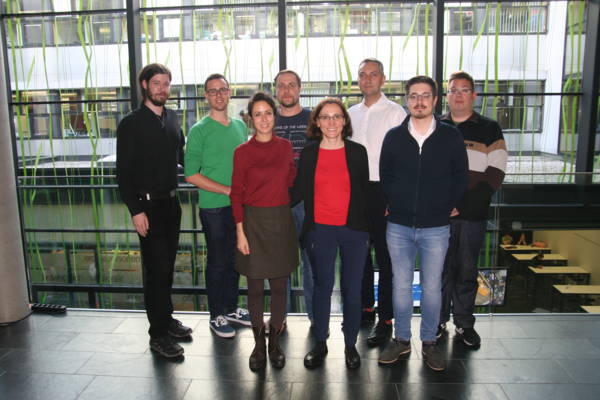Developing measures to support employee privacy whwn using tracking systems in industry and comparing positive aspects of tracking technologies with regard to occupational safety

Background
With the developments of digital networking, tracking systems are increasingly playing an important role in manufacturing. Recording and using real-time data of positions and status of transport, tools and containers (pallets, wired mesh crates) - so-called "asset tracking" - is already standard practice in several industry branches. It can be assumed that the use of tracking systems in companies will only increase.
In addition to asset tracking, these technologies also offer new possibilities for recording and evaluating the position of employees. This can be done on purpose in order to increase occupational safety in dangerous workplaces or to locate employees. However, since these systems usually use radio standards such as WIFI, Bluetooth or RFID, position data from employees' mobile devices (smartphone, smartwatch) can also be recorded without their consent.
Privacy concerns
Location data are sensitive information. With regard to employee privacy these kind of data should only be gathered with their consent and if it brings added value.
From a scientific point of view, there are 2 fundamental questions:
How to ensure that using localisation services will not lead to breaches in data protection standards?
How to ensure that user data is stored securely and used only for positioning?
Project Content
The SensiTrack project develops measures to support the positive aspects of tracking technology in terms of occupational safety, while limiting monitoring possibilities for employers. This creates new trust limits for the use or deliberate non-use of active or passive tracking systems. The project focusses on the use and design of digital technologies to improve working conditions. To this end, the following occupational science aspects are discussed:
- Improvement potential through active tracking in hazardous work areas
- Violation of privacy standards by recording position data in the work place
- Trustworthy tracking systems or opt-out possibilities for employees
Result
Working together with the Vienna University of Technology's Institute of Management Science (IMW) sensitisation for employees with regard to tracking systems at the workplace is enhanced and guidelines for companies when introducing and operating production tracking systems are formulated.
Within the framework of the project an experiment with 200 test persons is conducted at the pilot factory Industrie 4.0 in Aspern. An important part of the project is developing an experimental setup. The results of the experiment are then evaluated and made available to the AK and other relevant stakeholders f.ex. through workshops with employee representatives.
Downloads
You want to know more? Feel free to ask!
Digital Technologies Research Group
Institute of Creative\Media/Technologies
Researcher
Digital Technologies Research Group
Institute of Creative\Media/Technologies
Department of Media and Digital Technologies
Mag. Dr Martina Hartner-Tiefenthaler (TUW)
Dipl.-Ing. Markus Steinlechner (TUW)
Setareh Zafari, MSc. (TUW)
- TU Wien - Institut für Managementwissenschaften
- AUVA - Allgemeine Unfallversicherungsanstalt

